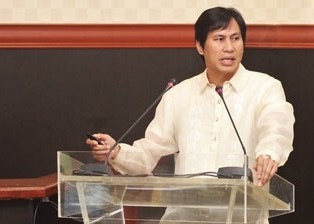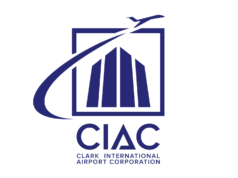HB 8910 main proponent Rep. Victor A. Yap. File photo
QUEZON CITY — The House of Representatives on Tuesday approved on second reading House Bill No. 8910 or the Open Access in Data Transmission Act, taking a step closer to genuine internet accessibility for all Filipino.
In his sponsorship speech, Tarlac 2nd District Rep. Victor A. Yap, chairman of the House Committee on Information and Communications Technology (ICT) and main proponent of the bill, deplored the dismal internet service of the leading telcos in the country.
“The limitations on our existing data network infrastructure continue to hinder the data services in the country. The duopoly of Globe and PLDT has stifled the growth of data transmission service,” Yap said.
“The Filipino people have been bearing with the slow and expensive internet service that these Telco giants provide. Even with the entry of DITO, internet service providers in rural areas continue to be limited in numbers,” he lamented.
On numerous occasions, President Rodrigo Duterte himself expressed his lament on the poor internet service in the country. As such, House Speaker Lord Allan Velasco, joined by 56 other Representatives co-authored the bill indicating the strong call for better internet accessibility. With overwhelming support from the House leadership and without dissent from the minority, the Open Access bill passed on second reading and is now awaiting schedule for nominal voting in the third and final reading before its transmittal to the Senate.
A landmark legislation, the enactment of the Open Access bill intends that in every local community, barangay, sitio, poblacion, or purok, “internet connectivity is available, reliable and significantly affordable.”
The bill envisions easy internet accessibility for each and every Filipino by updating analogue-era laws designed for telephone landlines and radio broadcasting to the present wave of handheld internet connectivity and data transmission.
It also introduces a policy and regulatory framework for the provision and regulation of internet services. It aims to generate infrastructure development by lowering the legal barriers to market entry and providing a simple and expeditious administrative registration process for prospective ISPs, promote open access, co-sharing or use of common facilities as network infrastructures, cultivate technologically-neutral innovations, and establish fair, transparent and future-proofed competition policies in the industry.
Various government agencies, civil society organizations and the private sector have stated their unequivocal support for the bill including the Bangko Sentral ng Pilipinas, National Economic Development Authority, Philippine Competition Commission, Department of Information and Communications Technology, Department of Trade and Industry, Philippine Chamber of Commerce and Industry, and several other foreign chambers of commerce in the country.
In the previous 17th Congress, the Open Access bill passed third reading in the House and was subsequently transmitted to the Senate Committee on Public Services. However, the bill failed to pass the deliberations of the committee chaired by incumbent Senator Grace Poe.




